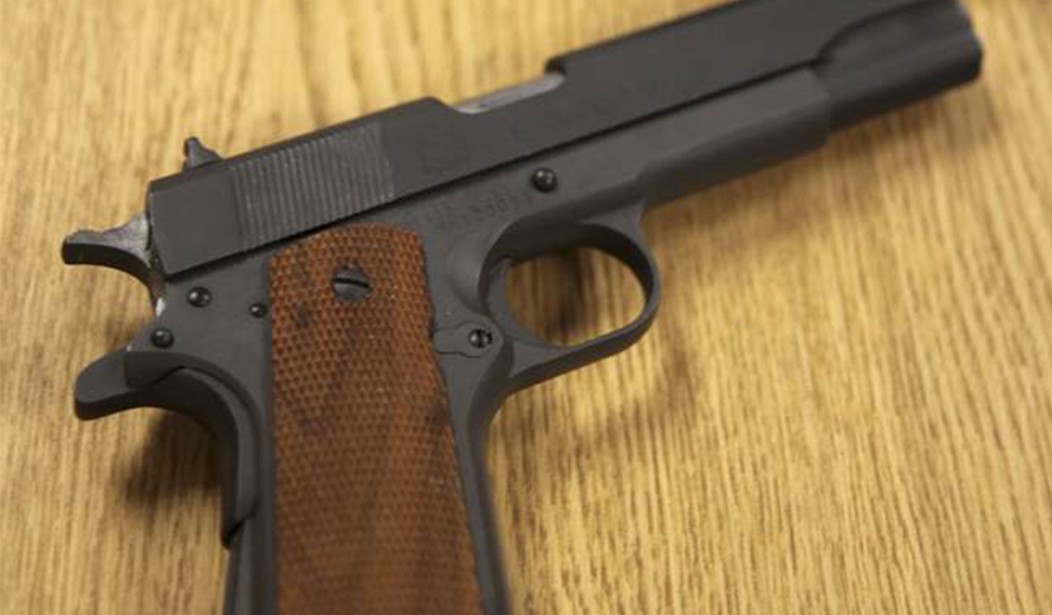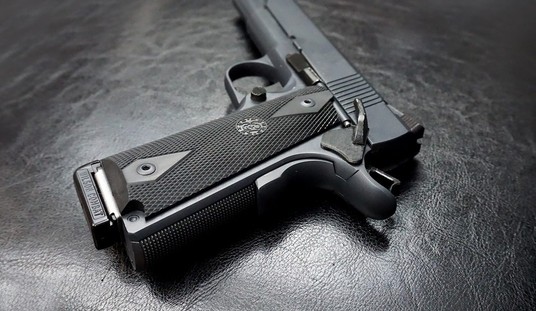If you want to own a handgun in the state of Maryland, it's not as easy as going to your local gun store and plunking down some cash. Before you can even fill out the paperwork required for your federal background check, you must first take a four-hour training course (which includes a live-fire test) and be fingerprinted. Only then can you submit your application for a Handgun Qualification License to the Maryland State Police, which has 30 days to approve or deny your application.
The law doesn't just apply to handgun purchases. Essentially, before you can even touch a firearm, whether it's a rental at a gun range or using a friend's gun to go plinking, you must have a valid HQL. Otherwise, you could face misdemeanor or possibly even felony charges and the prospect of prison time.
Last year, a three-judge panel on the Fourth Circuit Court of Appeals ruled the handgun licensing law unconstitutional, declaring “the challenged law restricts the ability of law-abiding adult citizens to possess handguns, and the state has not presented a historical analogue that justifies its restriction; indeed, it has seemingly admitted that it couldn’t find one.”
On Friday, however, an en banc panel of the Fourth Circuit overturned that ruling in a 14-2 decision; upholding the licensing law without the need for an historical analogue. According to the Fourth Circuit, since the Supreme Court has said that "shall issue" carry licenses are constitutional, the same must be true for "shall issue" laws regarding the simple possession of a handgun.
We conclude that the Supreme Court inBruen foreclosed the plaintiffs’ “temporary deprivation” argument by stating that, despite some delay occasioned by “shall-issue” permit processes, this type of licensing law is presumptively constitutional because it operates merely to ensure that individuals seeking to exercise their Second Amendment rights are “law-abiding” persons. We hold that the plaintiffs have failed to rebut this presumption of constitutionality afforded to “shall-issue” licensing laws like the handgun qualification statute. So the plaintiffs’ challenge to the HQL statute fails, and we affirm the district court’s award of summary judgment to the state of Maryland.
It's downright ridiculous for the Fourth Circuit to claim the HQL only exists to ensure that handgun owners are "law-abiding" persons. If that were the case, a simple background check would suffice. Maryland already has a "universal" background check policy, so even private transfers of firearms are supposed to go through a NICS check to determine whether the person receiving the firearm is legally allowed to possess one. The training mandate and the 30-day wait have nothing to do with someone's lawfulness.
The en banc panel of the Fourth Circuit maintains, however, that the background check required when transferring a firearm is substantially different than the background checks you have to go through to obtain a Handgun Qualification License.
Unlike the HQL statute, which directs that each individual obtain a license before purchasing, renting, or receiving a handgun, the 77R process applies to the purchase, rental,or transfer of every regulated firearm. Under the 77R process, an individual seeking to purchase a handgun in Maryland must submit to a firearms dealer a $10 fee and an application that contains, among other things, information regarding the handgun the individual seeks to purchase and the individual’s personal identification information. The 77R application also must contain the individual’s handgun qualification license number.
Once the 77R application is completed, the Secretary conducts a background investigation. Significantly, the background check under the 77R process does not involve the submission of fingerprints. So when the Maryland General Assembly passed the HQL statute, the legislature included a fingerprinting requirement after considering expert testimony explaining that Maryland’s then-existing laws were vulnerable to illegal “straw” purchases. One expert illustrated the gravity of this issue by citing a U.S. Government Accountability Office study in which undercover agents successfully used counterfeit driver’s licenses to purchase firearms from licensed dealers in five states that did not require fingerprinting. Thus, while both the 77R process and the HQL statute help ensure that an applicant is not prohibited from possessing a handgun, the HQL statute specifically aims to prevent individuals from using false identification to verify their eligibility to purchase a handgun.
In addition to this substantive difference between the background checks required by each law, these investigations also may take place at different points in time. As noted above, the initial background check under the HQL statute occurs when applicants submit their fingerprints with their application for a handgun qualification license. After this initial investigation, the law requires that the Maryland Department of Public Safety and Correctional Services provide the State Police with updated criminal history information for handgun qualification license holders. The State Police “regularly receives” such reports. In contrast, individuals complete the 77R process each time they purchase any regulated firearm. So the background check required by the77R process fills any gap that might result between the HQL criminal history reports and ensures that at the time an individual applies to purchase a handgun, the background check information reflects the individual’s current criminal history record.
In sum, background checks under the 77R process and the HQL statute differ because only the HQL statute involves the submission of fingerprints, and the background checks for each process may occur at different points in time. In light of these distinctions, and because the HQL statute effectively strengthens the 77R process, we reject the plaintiffs’ argument that the HQL statute’s background check is wholly redundant and so abusive as to “infringe” the Second Amendment right under step one of the Bruen framework.
Again, this is absurd. Using the Fourth Circuit's "logic", anti-gun states could impose a licensing process on every aspect of our right to keep and bear arms, and so long as each one was slightly different they could bury would-be gun owners under a mountain of red tape. Want to possess a handgun.
Moreover, the Supreme Court also rejected the federal government's argument in Rahimi that someone could be prohibited from possessing a firearm because they're not "responsible", which the government conceded was essentially synonymous with "law-abiding."
“Responsible” is a vague term. It is unclear what such a rule would entail. Nor does such a line derive from our case law. In Heller and Bruen, we used the term “responsible” to describe the class of ordinary citizens who undoubtedly enjoy the Second Amendment right. See, e.g.,Heller, 554 U. S., at 635; Bruen, 597 U. S., at 70. But those decisions did not define the term and said nothing about the status of citizens who were not “responsible.” The question was simply not presented.
The Fourth Circuit declared just a few weeks ago that Maryland's ban on so-called assault weapons is constitutional because AR-15s and other semi-automatic long guns are "like" machine guns and therefore fall beyond the scope of the Second Amendment's protections. Now it says the state's 30-day waiting period to possess a handgun is constitutionally sound as well, and there's no need for Maryland to point to any historical analogues that existed at the time of founding; a huge gift for defenders of the HQL given that those analogues simply don't exist.
The Supreme Court could grant cert to the Maryland gun ban case this fall, and they'll likely get the chance to consider the state's Handgun Qualification License in a few months as well. The odds of SCOTUS accepting both cases are pretty small, statistically speaking, but the Fourth Circuit's overzealous efforts to avoid subjecting these laws to Bruen's "history, text, and tradition" test need to be put in check as soon as possible, because the appellate court is doing exactly what SCOTUS warned about: treating the Second Amendment as a second-class right.








Join the conversation as a VIP Member